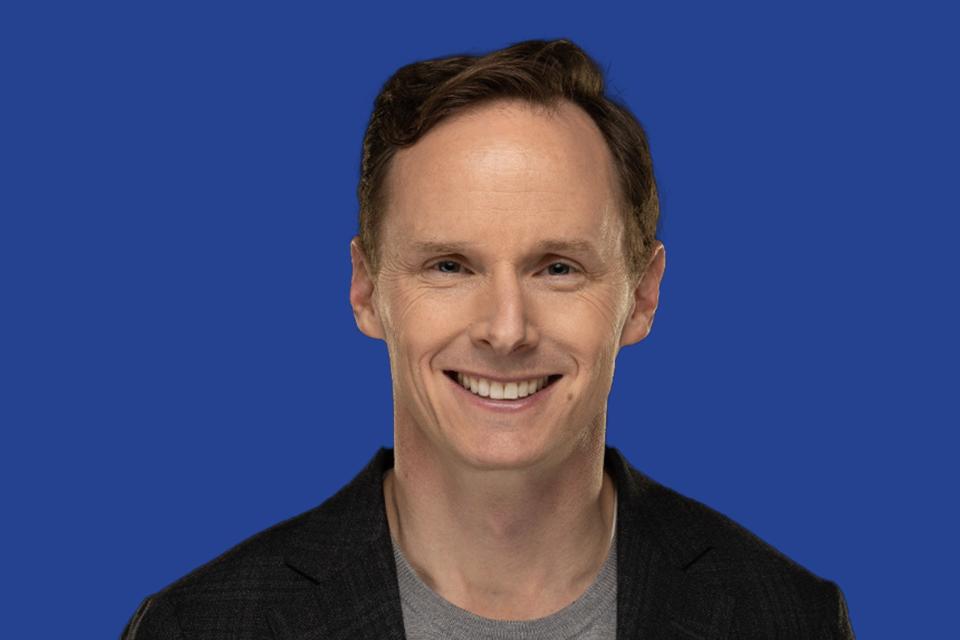Ironman taps Equinox president as new CEO in effort to woo more type-A executives

Ironman Group said Monday that it has hired the president of the high-end gym chain Equinox, Scott DeRue, to be its next chief executive as the endurance sports event organizer navigates a drop in race participation a decade after its peak.
DeRue, who joined Equinox in 2021 to help the 107-location chain recuperate from the pandemic's devastating blow to the fitness industry, says cultural and economic factors support the continued growth of Ironman events. Those include its iconic triathlons—consisting of a 2.4-mile swim, 112-mile bike ride, and a 140.6-mile run—as well as triathlons of half that distance, Ironman 70.3 races, and half-marathons. Despite lower triathlon and road race participation compared to a decade ago, DeRue predicts that Ironman's cult fan base and its obsession with health and hitting tough goals will support the organization's growth.
"You've got one of the most passionate, dedicated communities in the world, and they are affluent, looking to be inspired, looking to be challenged," he tells Fortune in an exclusive interview. But DeRue cautions that it is too soon for him to formulate specific ideas on building the Ironman business, adding that he will spend the first few months of his new job acquainting himself with the company, traveling to races, and training for his first triathlon. He replaces Andrew Messick, who led Ironman for 12 years.
While Ironman has largely recovered post-COVID (the privately-held company declined to disclose financial data), DeRue will have to contend with overall participation in triathlons that slipped pre-COVID after hitting all-time highs in 2017 when 4.2 million Americans crossed a finish line of varying distances. Ironman operates races globally, and the bulk of triathletes take part in longer triathlons.
Ironman's road racing division, Rock 'n' Roll, has largely moved away from the standard 26.2-mile marathon to focus on half marathons and shorter distances as the marathon boom of the 2010s receded.
Illustrating some of Ironman's challenges, popular race locations like Mont-Tremblant in Quebec and Lake Place in New York used to host both a full Ironman triathlon and a half-distance version every summer. Now, they each only host one. To be sure, other new events have appeared, such as the Ironman 70.3 in Jones Beach, N.Y., but cajoling local authorities to obtain road closure permits and building a new event from scratch is both cost and labor-intensive.
Still, DeRue sees potential for new races in existing markets and, crucially, squeezing more revenue from existing ones. After all, the logistics of these events means they can accommodate at most 3,000 athletes typically. Just some years ago, Ironman made a move in that direction when it introduced its XC race slots. XC, which stands for “executive challenge,” is meant to serve the niche Type-A business executives ready to shell out up to $15,000 for concierge services like meals, accommodation, and priority access to check-in—well above the no-frills $475 and $675 entry fees.
Key to wringing additional revenue out of existing races is developing new ways to serve customers beyond race day, DeRue says. To that end, he sees an opportunity in digital coaching services, like TriDot, with which Ironman entered a partnership last month.
"We want to find ways to empower and enable that ecosystem of coaches such as there is at Equinox, where I had the privilege of leading the world's largest training and coaching business," he says. DeRue, whose favored sport is the ultramarathon, including the 150-mile race through Mongolia's Modi Desert that he completed last summer, says he will hire a coach to prepare for his debut triathlon and understand the training process for the grueling races.
Prior to his stint as Equinox's president, DeRue was in academia, where he spent his last five years as dean of the University of Michigan's Stephen M. Ross School of Business. When asked how that experience will help him as Ironman CEO, DeRue simply says, "Don't underestimate the operational challenges of running a university." He adds: "Universities are some of the most challenging leadership environments that you could ever imagine, and we see that playing out in the news."
Ironman Group is owned by Condé Nast-parent Advance Publications and private equity firm Orkila Capital, which bought the company in June 2020 for a reported $730 million from China-based Wanda Sports Group. Wanda had bought Ironman years earlier, betting on an endurance sports boom in China that has not materialized. Nevertheless, DeRue sees future potential in the country, though it's not currently a priority.
Closer to home, he expects triathlons and distance running to keep attracting athletes and for endurance sports to continue their recovery. "We've got an iconic brand, we've got a great team, we've got a great race portfolio, and we have a passionate community."
This story was originally featured on Fortune.com

 Yahoo Finance
Yahoo Finance 